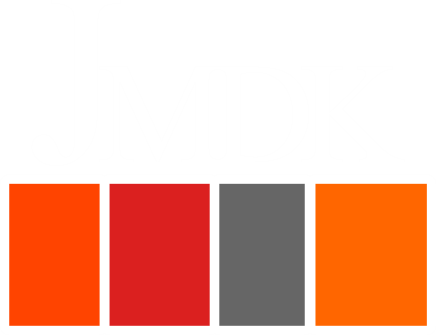Linkage of Entrepreneurial Orientation on Business Performance of Women Entrepreneurs and Mediation Role of Competitive Advantage
DOI:
https://doi.org/10.26905/jmdk.v10i1.6745Keywords:
Business Performance, Competitive Advantage, Entrepreneurial OrientationAbstract
Entrepreneurial orientation is an important mechanism for small and medium enterprises to persist in a dynamic business atmosphere. This study intends to inspect the role of competitive advantage in the connection between entrepreneurial orientation and business performance Small and medium business women entrepreneurs where the population of this study. They were engaged in culinary businesses registered with the Department of Cooperatives & SMEs, Padang City, West Sumatra. The random sampling method in a survey method is used in data collection. The Slovin formula with the calculation results of 97 culinary SMEs. This study used the SmartPLS (Partial Least Square) program in analyzing the data and test hypotheses. The results of hypothesis testing showed that competitive advantage significantly affects the connection between entrepreneurial orientation and women's business performance. This study suggests that the women entrepreneurs with entrepreneurial orientation attitudes are to create added value and competitive advantage for the businesses. Hence, their businesses have more advantages than the other similar businesses, which do not have an entrepreneurial orientation attitude.
Downloads
References
Alam, S. S., Senik, Z. C., & Jani, F. M. (2012). An Exploratory Study of Women Entrepreneurs in Malaysia: Motivation and Problems. Journal of Management Research, 4(4), 282-297 https://doi.org/10.5296/jmr.v4i4.2377
Amin, M. (2015). The effect of entrepreneurship orientation and learning orientation on SMEs’ performance: an SEM-PLS approach. J. for International Business and Entrepreneurship Development, 8(3), 215-230. https://doi.org/10.1504/jibed.2015.070797
Amin, M., Thurasamy, R., Aldakhil, A. M., & Kaswuri, A. H. Bin. (2016). The effect of market orientation as a mediating variable in the relationship between entrepreneurial orientation and SMEs performance. Nankai Business Review International, 7(1), 39–59. https://doi.org/10.1108/NBRI-08-2015-0019
Anggadwita, G., Mulyaningsih, H. D., Ramadani, V., & Arwiyah, M. Y. (2015). Women entrepreneurship in Islamic perspective: A driver for social change. International Journal of Business and Globalisation, 15(3), 389–404. https://doi.org/10.1504/IJBG.2015.071914
Arshad, A. S., Rasli, A., Arshad, A. A., & Zain, Z. M. (2014). The Impact of Entrepreneurial Orientation on Business Performance: A Study of Technology-based SMEs in Malaysia. Procedia - Social and Behavioral Sciences, 130,46–53. https://doi.org/10.1016/j.sbspro.2014.04.006
Barney, J. (1991). Firm Resources and Sustained Competitive Advantage. Journal of Management, 17(1), 99–120.
Cesaroni, F. M., Pediconi, M. G., & Sentuti, A. (2018). It’s Always a Women’s Problem! Micro-Entrepreneurs, Work-Family Balance and Economic Crisis. Administrative Sciences, 8(4),1-16. https://doi.org/10.3390/admsci8040074
Covin, Jeffrey, G., & Slevin, Dennis, P. (1989). Strategic management of small firms in hostile and benign environments. Strategic Management Journal, 10(1), 75–87. file:///C:/Users/Ichiyanagi/Downloads/Strategic_Management_of_Small_.pdf
Fairoz, F. M., Hirobumi, T., & Tanaka, Y. (2010). Entrepreneurial Orientation and Business Performance of Small and Medium Scale Enterprises of Hambantota District Sri Lanka. Asian Social Science, 6(3), 34–46. https://doi.org/10.5539/ass.v6n3p34
Fatoki, O. O. (2011). The Impact of Human, Social and Financial Capital on the Performance of Small and Medium-Sized Enterprises (SMEs) in South Africa. Journal of Social Sciences, 29(3), 193–204. https://doi.org/10.1080/09718923.2011.11892970
Hasan, F. S. M. A., & Almubarak, M. M. S. (2016). Factors influencing women entrepreneurs’ performance in SMEs. World Journal of Entrepreneurship, Management and Sustainable Development, 12(2). https://doi.org/10.1108/WJEMSD-09-2015-0037
Hoc, L., Fong, N., & Law, R. (2014). A Primer on Partial Least Squares Structural Equation Modeling (PLS-SEM). Sage Publications. European Journal of Tourism Research, 6(2), 211–213.
Hussain Haider, S. (2017). Entrepreneurial Orientation and Business Performance of Manufacturing Sector Small and Medium Scale Enterprises of Punjab Pakistan. European Business & Management, 3(2), 21. https://doi.org/10.11648/j.ebm.20170302.12
Khavarinezhad, S., & Biancone, P. Pietro. (2021). Female International Entrepreneurship : Financing Factors of Business Venturing. 1–25.
Kiyabo, K., & Isaga, N. (2020). Entrepreneurial orientation, competitive advantage, and SMEs’ performance: application of firm growth and personal wealth measures. Journal of Innovation and Entrepreneurship 9(1). https://doi.org/10.1186/s13731-020-00123-7
Lechner, C., & Gudmundsson, S. V. (2014). Entrepreneurial orientation, firm strategy and small firm performance. International Small Business Journal, 32(1), 36–60. https://doi.org/10.1177/0266242612455034
Lumpkin, G. T., & Dess, G. G. (1996). the Entrepreneurial Clarifying It Construct and Linking Orientation. Academy of Management Review, 21(1), 135–172.
Madhoushi, M., Sadati, A., & Delavari, H. (2011). Entrepreneurial Orientation and Innovation Performance: The Mediating Role of Knowledge Management. Asian Journal of Business Management, 3(4), 310–316.
Mata, B., & Aliyu, M. S. (2014). a Pilot Study on the Relationship Between Determinants of Sme Performance in Nigeria. Journal of Asian Scientific Research, 4(10), 597–602.
Mohamed, R., & Hanafi, N. (2013). The Impact of Corporate Entrepreneurship on Company Growth in a Hostile Business Environment. 7th Global Conference on Business & Economics, 4(1), 82–90.
Nneka, A. A. (2015). Factors that affect the performance of women entrepreneurs in the micro scale enterprises in Southwestern Nigeria. The Business & Management Review, 6(2), 30–31. https://search.proquest.com/openview/d59294661acefe068c0d933fe6f39955/1?pq-origsite=gscholar&cbl=2026610
Oni, O., Agbobli, E. K., & Iwu, C. G. (2019). Entrepreneurial orientation and performance of small business in Vryburg region north west Province South Africa. Journal of Reviews on Global Economics, 8(February), 63–71. https://doi.org/10.6000/1929-7092.2019.08.07
Rose, R. C., Abdullah, H., & Uli, J. (2010). the Relationship Between Organisational Competitive Advantage and Performance. Asian Academy of Management Journal, 15(2), 157–173.
Runyan, R. C., Huddleston, P., & Swinney, J. (2006). Entrepreneurial orientation and social capital as small firm strategies: A study of gender differences from a resource-based view. International Entrepreneurship and Management Journal, 2(4), 455–477. https://doi.org/10.1007/s11365-006-0010-3
Sharma, A., & Sharma, A. (2013). Women entrepreneurs: A surge to break the image of housewives. International Journal of Economics …. http://www.academia.edu/download/31699434/5._Women_entrepreneur.full.pdf
Tambunan, T. T. H. (2017). Women Entrepreneurs in MSEs in Indonesia: Their Motivations and Main Constraints. International Journal of Gender and Women’s Studies, 5(1), 56–86. https://doi.org/10.15640/ijgws.v5n1a9
Zainol, N. R., & Al Mamun, A. (2018). Entrepreneurial competency, competitive advantage and performance of informal women micro-entrepreneurs in Kelantan, Malaysia. Journal of Enterprising Communities, 12(3), 299–321. https://doi.org/10.1108/JEC-11-2017-0090
Zeebaree, M. R. Y., & Siron, R. B. (2017). The Impact of Entrepreneurial Orientation on Competitive Advantage Moderated by Financing Support in SMEs. International Review of Management and Marketing, 7(1), 43–52. http:www.econjournals.com
Zehir, C., Köle, M., & Yıldız, H. (2015). The Mediating Role of Innovation Capability on Market Orientation and Export Performance: An Implementation on SMEs in Turkey. Procedia - Social and Behavioral Sciences, 207, 700–708
Downloads
Additional Files
Published
Issue
Section
License
Authors who publish with this journal agree to the following terms:
(1)Â Copyright of the published articles will be transferred to the journal as the publisher of the manuscripts. Therefore, the author confirms that the copyright has been managed by the journal.
(2) Publisher of Jurnal Penelitian is University of Merdeka Malang.
(3) The copyright follows Creative Commons Attribution–ShareAlike License (CC BY SA): This license allows to Share — copy and redistribute the material in any medium or format, Adapt — remix, transform, and build upon the material, for any purpose, even commercially.












